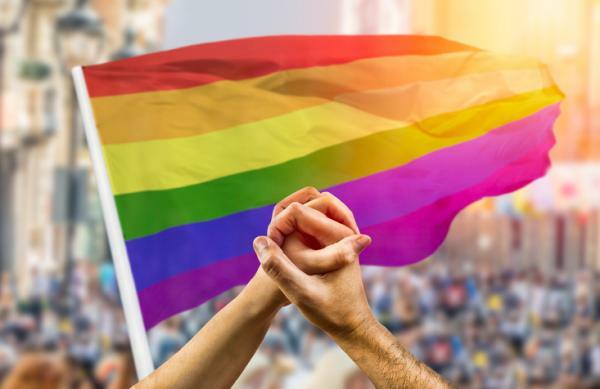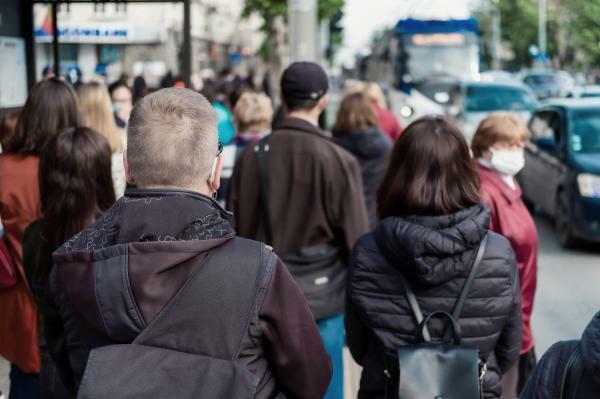
Bisexual people experience much more discrimination than we can imagine. Since the conception of bisexuality as an accepted sexual orientation emerged, it has been strongly doubted and questioned.
In this sense, people, who have identified themselves as bisexual, have been strongly discriminated against, criticized, questioned, made invisible in their condition and desire, etc. And this why? It is difficult for us to understand that there can be attraction for two sexes at the same time and there is a lot of ignorance about the subject. That is why in this online Psychology article, we will explain what is biphobia and we will tell you about its characteristics and examples.
It is usually thought, in a general way, that bisexual people are individuals who have not yet resolved in their sexual identity and that the fact that their desire is directed to two sexes is due to the fact that they are unclear or confused. Next, we will really see what bisexuality and biphobia are.
What is bisexuality
To better understand what we are talking about, it is first important to clarify some concepts. According to the APA, bisexuality is the physical, sexual, emotional and romantic attraction, directed to both biological sexes. This sexual orientation is characterized by the fact that the person, regardless of their sex, feels attracted to men and women.
Many people, even today, still have a hard time understanding that someone can be attracted to both sexes and, for this reason, they reject this possibility. This creates many problems because it stigmatizes people who define themselves as bisexual, it makes them feel very confused and that many of them end up denying their condition or lying to themselves and others in order to to fit in.
In this article, you will find more information about the different types of sexual orientations that exist.
What is biphobia
According to the Spanish Commission for Refugee Aid (CEAR), biphobia refers to the dislike or hatred towards a person because of their sexual orientation, gender identity or expression, for being different from the norm. In addition, it consists of a violation of the rights of this person as well as the entire bisexual group.
People with biphobia usually have the following attitudes:
- They reject, discriminate, annul or silence bisexuality, either through their actions, words or gestures.
- Actively advocates that bisexuality is unnatural.
- They believe that the attraction can only be felt towards the opposite sex or the same sex, without giving space to other ways of loving different from those they know or are their own.
- It openly states that bisexuality is a transitory state where there is a lack of clear sexual identity and, on occasions, induces or pressures the other to define himself. This would correspond to a discriminatory and intolerant act, which with or without intention, is nullifying the reality of the other and depriving him of freely choosing the object of his desire and thus determine his identity.
In order to better identify what biphobia is, below, we will show you some of its main characteristics:
- Stereotypes and prejudices towards bisexuals: any comment directed towards the person who acts as a discriminatory agent and who encourages and collaborates in the maintenance of these stereotypes and prejudices.
- Active or passive rejection of bisexual people- One of the characteristics of biphobia is avoiding contact, walking away, or publicly rejecting a person just for being bisexual.
- Discriminate against the other for being bisexual: not accept it for this in a job, in a flat or in a public place.
- Derogatory words or actions around bisexuals: gestures that are often normalized that perpetuate prejudices. In this article, we tell you how prejudices affect society.
- Taboos regarding bisexualityAvoiding the topic denatures this sexual condition and makes bisexual people feel unaccepted, rejected, or generates prejudices around the subject.
- Being intolerant of bisexuality: does not tolerate this type of sexual orientation.
- Judgments about the validity of your sexual orientation: talk about the fact that bisexuality does not exist and force the other to define himself in his choice of object sexuality, reducing this to the choice by men or women and commenting that they have a lack of identity.
- Value judgments: talk about a person being "dirty", "that he has no respect", "that he is lost" or any other value judgment of why a person loves both sexes.
- Imperative aimed at defining the other as monosexual: the categories of heterosexual or homosexual are accepted, but the idea that a person can be attracted to more than one sex and they are seen as "strange creatures", who are not understood, nor are they sought to understand and are judged, excluded or denies.
Finally, we will see some examples of biphobia that bisexual people encounter on a daily basis:
- Laws that criminalize consensual acts between bisexual peopleAlthough we cannot imagine it, there are still countries that penalize people for not being heterosexual and that greatly stigmatize the fact of loving a person of the same sex or of more than one sex.
- Any violent or hostile act on a physical, sexual, verbal or psychological level: physical aggressions and myths or popular beliefs regarding the subject that discriminate and distort the subject are included.
- Humiliating act: for example, genital or anatomical modification without consent.
- Forced marriages: with the aim of hiding bisexuality.
- Discriminatory treatment in public: any discriminatory act in access to any public service.
- Discrimination within the family: non-acceptance of sexual orientation in the family nucleus.
- Discrimination in the work area: either within a work environment or by being rejected at the time of the job search only because of sexual orientation.
- Group discriminationsocial: They include from jokes between colleagues or avoiding, rejecting or separating a person just because of their sexuality.
This article is merely informative, in Psychology-Online we do not have the power to make a diagnosis or recommend a treatment. We invite you to go to a psychologist to treat your particular case.


